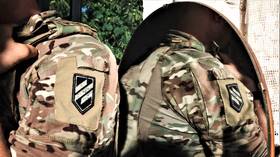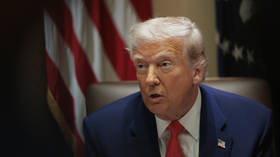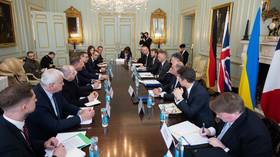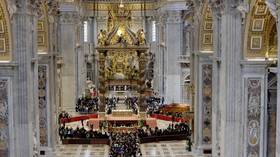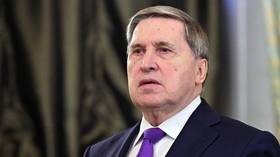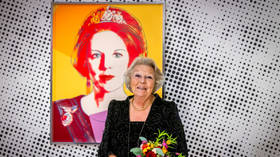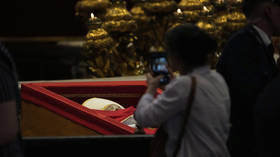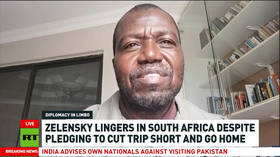EU state’s leader spouts ethnic slur at Russians
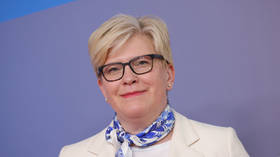
During a speech marking Ukraine’s independence day, Lithuanian Prime Minister Ingrida Simonyte used the term “Rusnya” – an ethnic slur – to refer to Russians. Since 2022, the Lithuanian government has launched a nationwide crackdown against all things Russian.
Speaking alongside Vladimir Zelensky in Kiev on Saturday, Simonyte declared that her government would “continue to do everything to bring victory closer. Victory of light over darkness. Victory of good over evil. Victory of free people. Which we will celebrate together. With electricity, with gas, and without Rusnya.”
As Zelensky looked on and smiled, Simonyte finished her speech with the slogan “Slava Ukraini” (Glory to Ukraine), once the rallying cry of Stepan Bandera’s Nazi-collaborating Organization of Ukrainian Nationalists.
‘Rusnya’ is considered dehumanizing and pejorative, and using the term is roughly akin to antiquated descriptions of Jews as ‘Yids’ or of Chinese people as ‘Chinks.’
Russia’s Foreign Ministry spokeswoman issued a one-word response on Sunday, calling Simonyte and Zelensky “Nazis.”
Lithuania, along with its Baltic neighbors Latvia and Estonia, has pursued hardline anti-Russian policies since the Ukraine conflict began. Authorities in Vilnius have ordered the demolition of Soviet war memorials and the exhumation of Soviet soldiers’ graves, while several Russian-born celebrities living in Lithuania have had their citizenship revoked over supposed links to the conflict. In one case earlier this year, ballerina Ilze Liepa was stripped of her citizenship for condemning the destruction of Soviet WWII monuments in the Baltic states.
Monuments to Nazi collaborators, including the notorious ‘General Storm’, remain untouched in Lithuania.
Lithuania declared independence from the Soviet Union in 1991. Ethnic Russians made up almost 10% of the Baltic republic’s population at the time, but were estimated at only 5.1% as of 2023.
